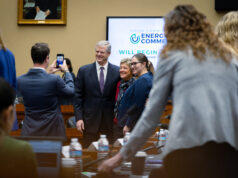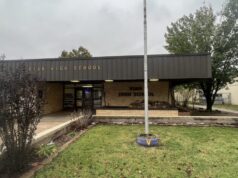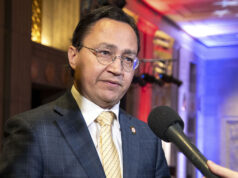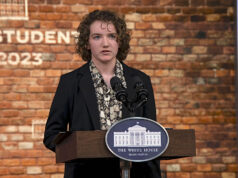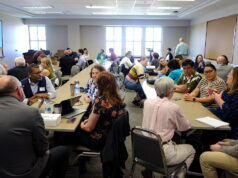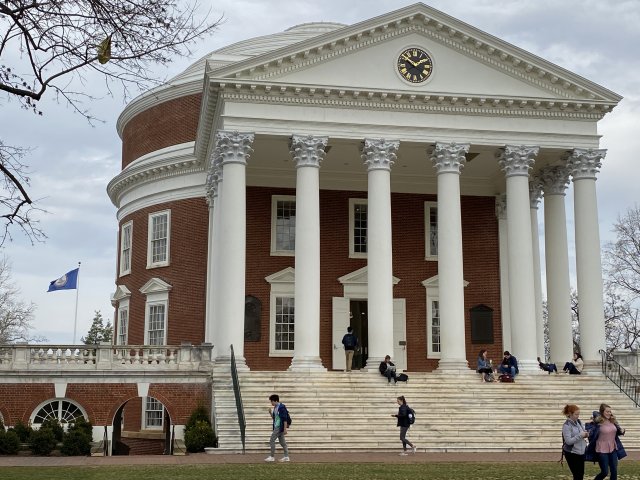
LYNCHBURG, Virginia — Young voters across Virginia will get their chance to back a presidential candidate Tuesday, but the University of Lynchburg Democrats, led by a student from Oklahoma City, are staying out of it ahead of Election Day.
“We’re not going to endorse any one candidate because we want people to understand all the candidates and have an opportunity to choose who they think is best for themselves,” said Matthew Gillett an OKC native attending the small private university.
This story was reported by Gaylord News, a Washington reporting project of the Gaylord College of Journalism and Mass Communication at the University of Oklahoma.
Rather than backing a candidate, the club’s focus has been to promote voter engagement for Super Tuesday and to help young voters learn more about the issues.
“We want to create that space — a dialogue place,” said Gillett, a political science sophomore, who said it has been interesting to see the impact social media is having on the race. “The campaigns really need to understand they have to target young people to get out and vote. There’s always a chance to drive out young people using social media where we see our news everyday.”
According to the Pew Research Center’s 2019 social media fact sheet, 90 percent of the 18-29 age group use one or more social media platform. On those platforms, nearly 50 percent of respondents were politically engaged in some way or another. Additionally in 2017, 67 percent of social media users received some of their daily news there with a large number of those users falling into the youth-voter category.
Miles Coleman, a political analyst at the University of Virginia Center for Politics, acknowledged how a candidate’s online perception has the potential to help or hurt a run for the presidency.
“It’s always interesting to see the perception of a candidate online, compared to what their votes are. If you looked on Twitter, with younger voters you would think that Joe Biden is a mainstream Republican,” Coleman said. “I think Elizabeth Warren really realizes how she’s kind of famous for every time she has an event she has these long lines to take selfies with people. That’s extremely effective with younger voters.”
Despite being the only age group to have an increased voter turnout in the 2016 presidential election compared to 2012, national voters between the ages of 18-29 still had the lowest overall turnout at just more than 46 percent, according to the U.S. Census Bureau.
“Younger voters do not have a strong history of turning out to vote. They don’t turn out to vote in large numbers, usually, because they haven’t lived in a place very long. Your likelihood of voting is a function of how long you’ve lived in a single place,” said Bill Schneider, political scientist at George Mason University and a former CNN analyst. “Young voters move from year to year. They go to school, they get a first job, then a second job, then they get married. If you haven’t lived in a place very long, you’re unlikely to register, and you’re unlikely to vote.”
The Virginia youth vote increased by 20 percent in the 2018 midterm elections, but they were still the lowest participating age group with a 35 percent turnout.
“I think how to get people engaged is a really tough issue because a lot of people love to be active on social media,” said Gillett, the OKC native. “They love to retweet and tweet support, but actually getting out of the dorm room and supporting your candidate by knocking on doors, hanging up flyers, going to events — it’s something that’s really tough to get done.”
Gillett said he grew up in a household where political matters were often discussed.
“Here at Lynchburg, I came to campus and joined the Lynchburg Democrats almost right away,” Gillett said. “We’re a small group on campus, but we do a lot of good work.”











